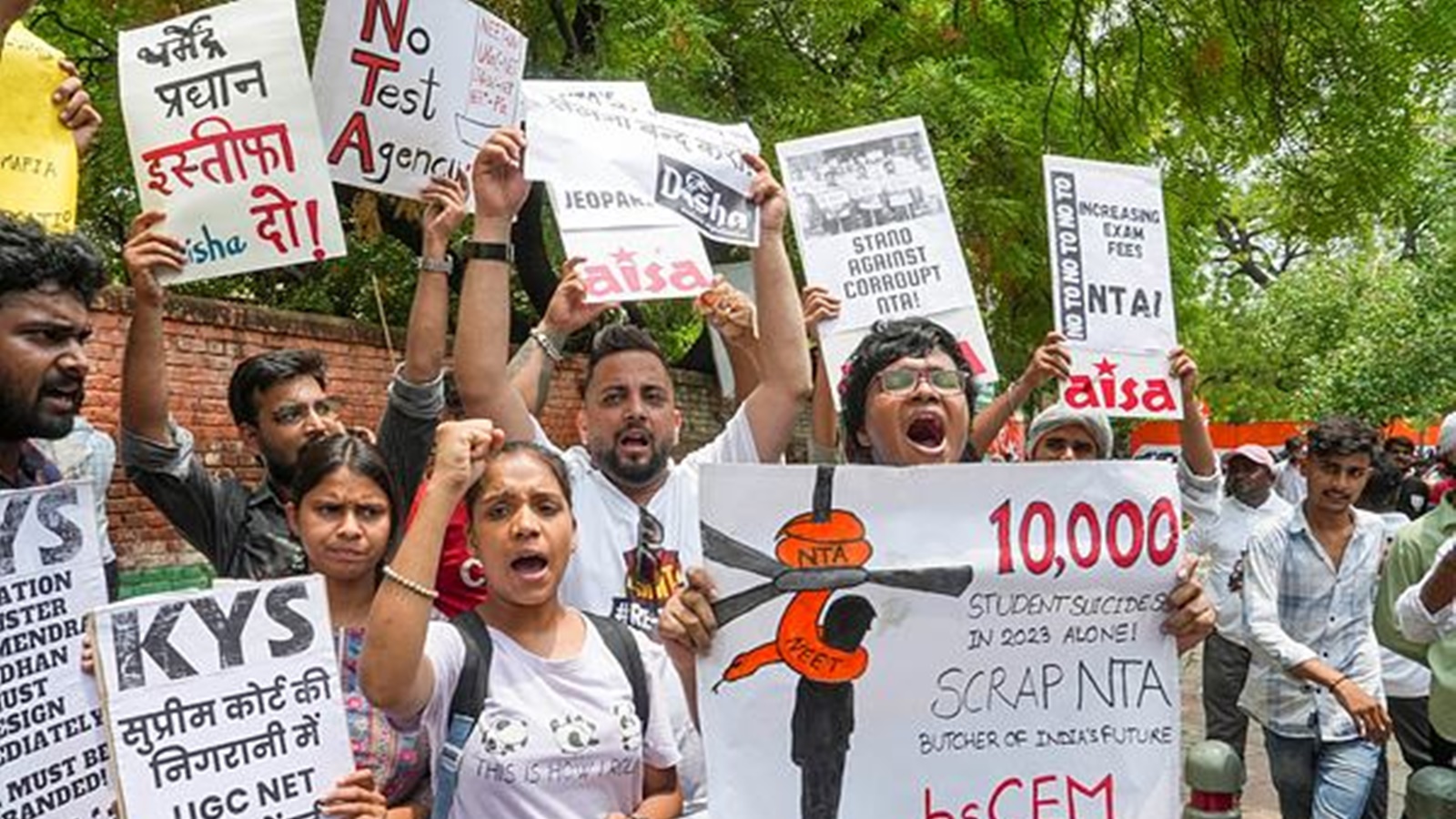In less than a month, the country has witnessed at least three incidents of examination crisis and a grievous railway accident. Last week, on the first day of the monsoon, while people in the capital got relief from the sweltering heat, came the terrible news of a roof collapse killing one person at the Delhi airport, the busiest in the country. A day later, heavy rainfall brought down a canopy outside the Rajkot airport, close to the passenger pick-up and drop-off area – thankfully, no one was injured. The rains have also brought familiar problems of inundated roads and traffic snarls in several parts of the country.
It would, perhaps, be unfair to blame the government for all these incidents within a month of beginning a new inning. They are, by all accounts, a result of systemic failings that have accumulated over decades. Yet, a government that has held office for more than 10 years now cannot escape complicity. Crumbling infrastructure, frequent examination crises, railways accidents and longstanding civic problems do not speak well of a government that has set itself the goal of making the country a developed nation in the next quarter century.
The non negotiables
Just after the Covid pandemic, the government increased capital expenditure on infrastructure to shore up an economy that was on the downturn following the pandemic. The GDP and other economy-related growth figures testify to the success of the government’s endeavours. If things go according to plan, the country will become the third-largest economy, sometime in the middle of the current government’s tenure. But a developed country is much more than the size of its GDP.
Technically, a developed country is associated with high per capita income. Developed countries also have advanced infrastructure and diverse industries and services. But more importantly, people in such countries enjoy access to goodquality education and healthcare. The system is sensitive to social and economic inequalities and attempts to ensure a level playing field for all. The onus for that is on institutions, autonomous to the powers-that-be. The paucity of such institutions has been amongst the biggest failings of independent India.
Nearly every crisis, every accident, every scam, and every environmental tragedy is followed by the government of the day setting up a panel to examine what went wrong. A panel is currently trying to go to the roots of the examination crisis. The airport roof collapse is being probed. So is the train accident. But history shows that these investigations have at best pinpointed immediate causes and directed attention to individual culpability. That, of course, is important.
Viksit Bharat will, however, need much more. It will hinge on a system in which knowledge, accurate information, data and, above all, respect for human dignity as loadstars for due processes and standards. It will need implementing agencies that regard due processes and people’s well-being as sacrosanct. Too often standards are a victim to the chalta hai attitudeor are compromised at the whims of the powerful. Above all, Viksit Bharat will need the humility to acknowledge that things have gone wrong and course correct – it will require the powers that be to listen to diverse voices.
Familiar failings
Take the Pragati Maidan tunnel in Delhi, for instance. According to a report in this newspaper in February, the multi-crore project is today bedevilled by water seepage, large cracks in cement/concrete and poor drainage. Last year, the tunnel was closed for over a month due to waterlogging. As Delhi experienced its first rains of the monsoon last week, the tunnel was knee-deep in water. That’s exactly what happens, year after year, at the underpass near the Minto Bridge in the capital. These failures speak of our planners’ failure to learn from past mistakes – in this case, respect the recharge zones of the river when undertaking construction. And, Delhi is not alone. The failure to respect hydrology is a big cause of urban floods – whether in Chennai, Mumbai or Guwahati.

The problems thrown up by train accidents, whether in Odisha two years ago or in Jalpaiguri 10 days ago, highlight the issues that must be addressed in the next phase of the country’s development. While the railways have expanded, questions on safety must be answered. Similarly, the repeated examination crises point to another undone job – a mismatch between people’s aspirations and the job market.
Viksit Bharat cannot be built on crumbling infrastructure, train accidents and a failing examination system.
Till next time,
Take care,
Kaushik Das Gupta
© The Indian Express Pvt Ltd
First uploaded on: 30-06-2024 at 19:39 IST


